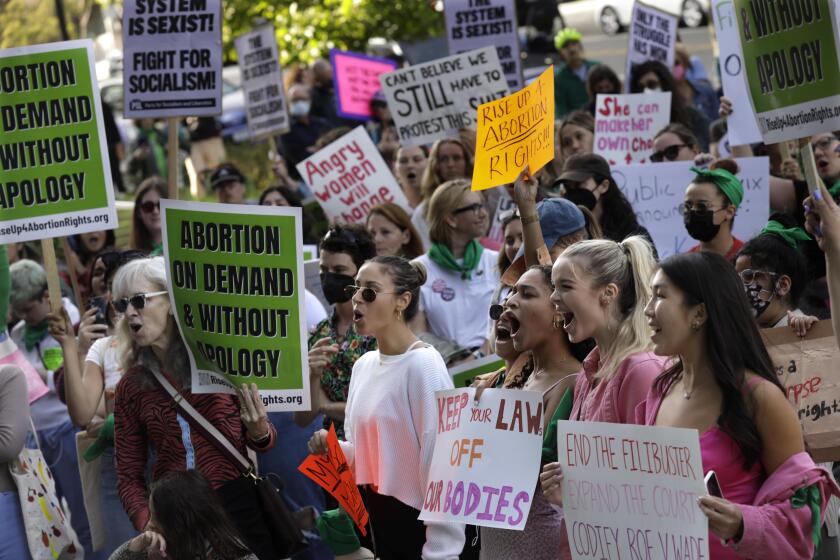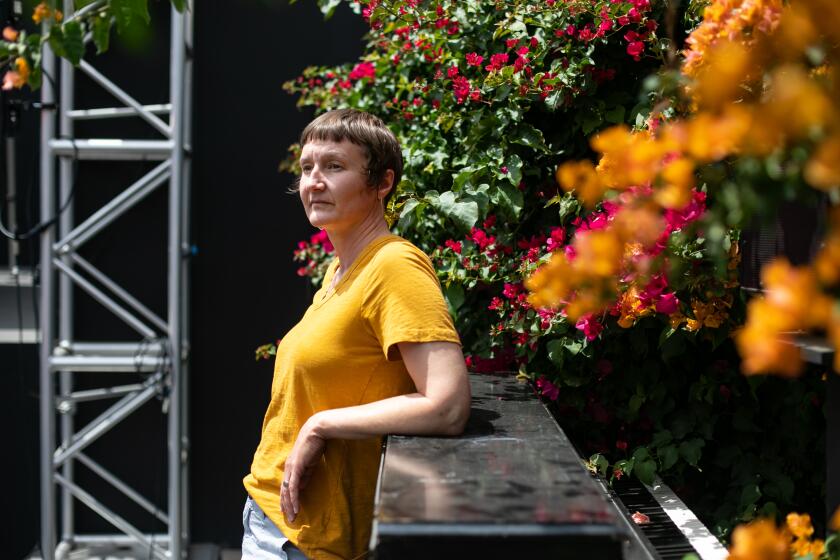L.A.’s Fountain Theatre responds to the fall of Roe with part obituary, part call to action
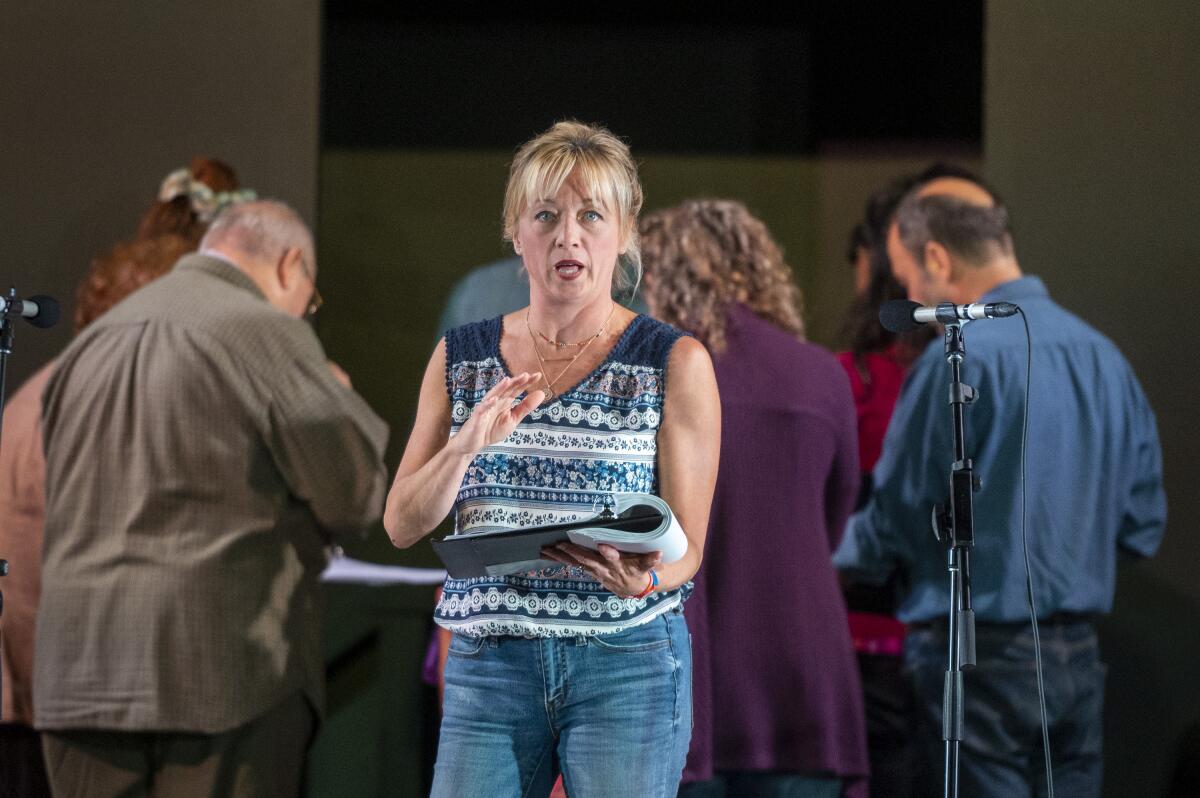
On Friday, after the U.S. Supreme Court had overturned Roe vs. Wade, the cast and the audience at L.A.’s Fountain Theatre discussed the ruling across the footlights, right in the middle of a live show.
Performer Christina Hall reminded the crowd that all three of the justices appointed by former President Trump had promised at their confirmation hearings that they would not overturn precedents set by previous courts. “And then they did!” Hall shouted.
“Liars!” replied an audience member, prompting claps and grumbles of agreement.
But then we all settled down and watched as Hall delivered the rest of her lines. She wasn’t breaking character. She was playing Sarah Weddington, the lawyer who represented Jane Roe before the Supreme Court in 1973, in a staged reading of Lisa Loomer’s 2016 play “Roe.”
Here’s everything you need to know about the U.S. Supreme Court’s decision on Roe vs. Wade.
As soon as news leaked in May that the court would likely reverse Roe — obliterating half a century of legal precedent — Stephen Sachs, the Fountain’s artistic director, began planning to revive Loomer’s play on an outdoor stage built a year ago in response to the pandemic.
To get the show running in time, the Fountain is presenting “Roe” as a “hyper-staged” reading with no sets or props. Performers carry scripts as they interact with one another under the well-paced direction of Vanessa Stalling. Weddington and Kate Middleton, who plays plaintiff Jane Roe (real name Norma McCorvey), both performed their parts in previous productions elsewhere, so their characters feel fully inhabited, their Southern accents locked in.
Loomer’s playful script also lends itself to an informal approach. Her characters are aware that they’re characters — that their names and deeds are being used in the service of a work of drama — and they often interrupt the story with bits of exposition, helpful context, self-justification and deadpan quotations from internet encyclopedia entries. After McCorvey mimes snorting a line of cocaine, she turns to the audience and shrugs, “What? It was the ’90s.”
“Well, I’ll leave now, as this will be the high point of my life,” Weddington’s colleague Linda Coffee (Susan Lynskey) announces at the conclusion of her story arc, adding after a beat, “According to Wikipedia.”
This use of direct address encourages the audience to join in — to cheer when things go well for Weddington, to crow when Justice Blackman (the endearing John Achorn) reads his landmark opinion, to whoop whenever the sassy McCorvey puts somebody in his or her place, to sigh when she finds love with supportive Connie (a heartbreaking Xochitl Romero), and to boo when she submits to the rhetoric of born-again Christian preacher Flip Benham (an oozily charming Rob Nagle).
Loomer regularly updates the opening and closing of “Roe” to reflect the latest social, political and legal attitudes about abortion rights, giving each production since the play’s premiere in 2016 a refreshed urgency. (The Fountain reading Friday was the last preview before opening night Saturday; the run ends July 10.)
But Friday night’s performance of “Roe” was the first to take place in a United States with no constitutional right to abortion. For the first time in the play’s life, its look back at the history of Roe v. Wade didn’t seem like a fundamentally optimistic reminder of the price of our freedom. The whole context had changed.
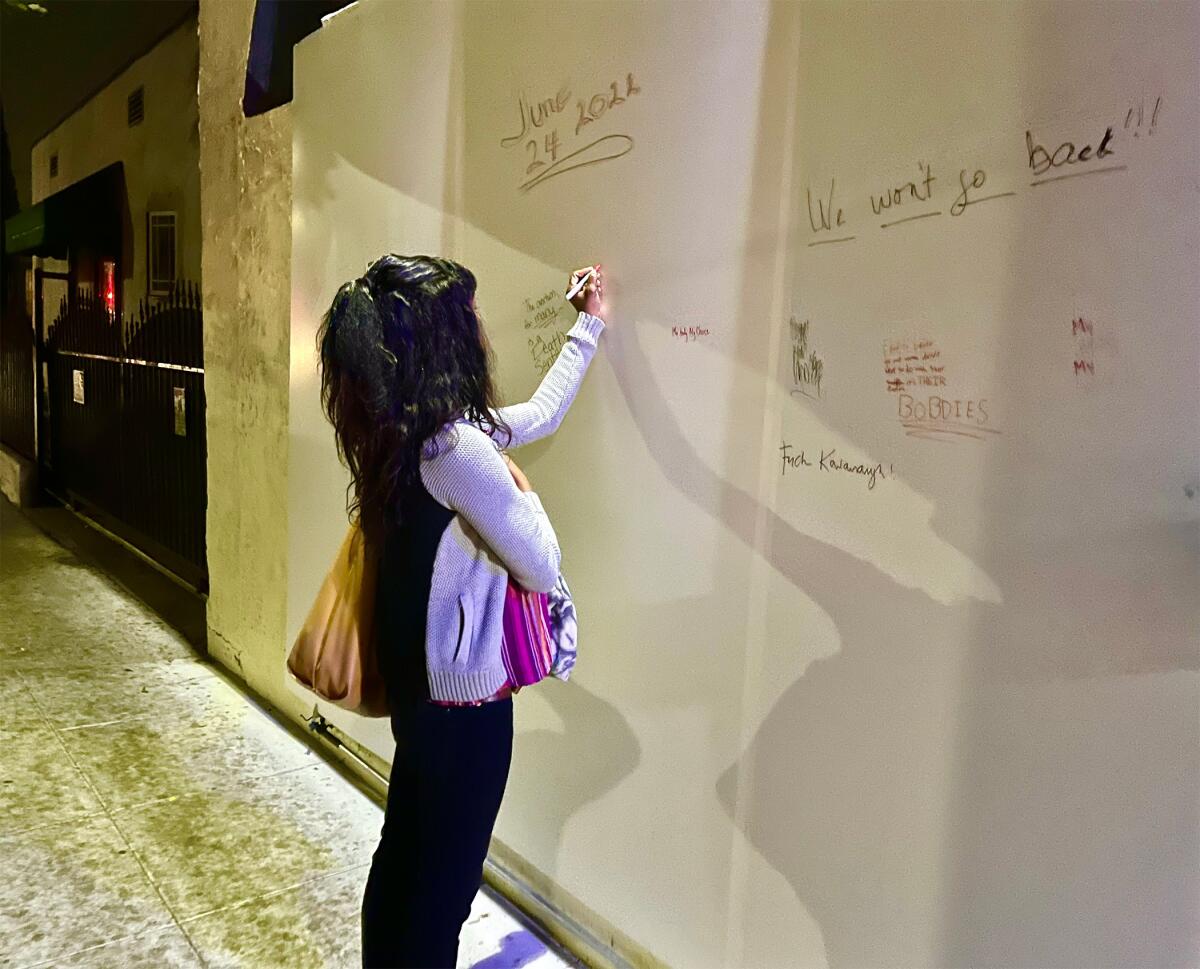
Nobody in the crowd was weeping, openly exulting or rioting — although police helicopters, seemingly alert to the possibility of protest in the city — buzzed overhead throughout the performance. The mood was subdued, even uneasy. What were we seeing? Was it, as Weddington asked in her new introduction supplied by Loomer, “an obituary for Roe v. Wade, or a call to action?”
An obituary and a call to action are two different things, provoking largely incompatible responses. The disparity left me and my companion for the evening, at least, a bit at a loss. Should we be in mourning, in which case some of the play’s humor came across as flippant, or should we be storming the Capitol, in which case what were we sitting around waiting for?
Especially during the second act, which gets into the weeds of McCorvey’s colorful post-Roe life as the pawn of different causes, I felt an impatience that wouldn’t have troubled me months ago.
When the unreleased decision overturning Roe vs. Wade leaked, Fountain Theatre fast-tracked a staged reading of Lisa Loomer’s play ‘Roe.’
Back then, I considered Roe vs. Wade a perpetually embattled but indomitable principle of American civil liberty. I naively assumed that although it would be regularly threatened, it would never be overturned. The blunt conversations in the play about the horrifying realities Roe vs. Wade was intended to put behind us — the dangerous, illegal abortions, the routine enforced sterilizations of women of color — are much harder to hear when they’re describing the possible future as well as the distant past.
So I waited a bit desperately for Loomer’s newly written ending for “Roe,” hoping that it would provide me with some reassuring wisdom, or a game plan. Of course I knew that Weddington, along with nearly everybody in the story but Clarence Thomas, was dead, but I still waited for her avatar to tell me what to do. Which is a lot to ask of an avatar, and certainly of a play, or a playwright.
I didn’t get an easy answer at the Fountain on Friday. I did get a better understanding of the deep roots of this endless battle, the obduracy of both sides. I was reminded of how difficult it was to establish Roe vs. Wade, of how much work and struggle went into the effort. The thought of how much more work and struggle would necessarily be required to do it all over again, with the odds so long, left me disheartened, slightly queasy and on the brink of despair. But not entirely despairing yet. Because the odds were long then, too.
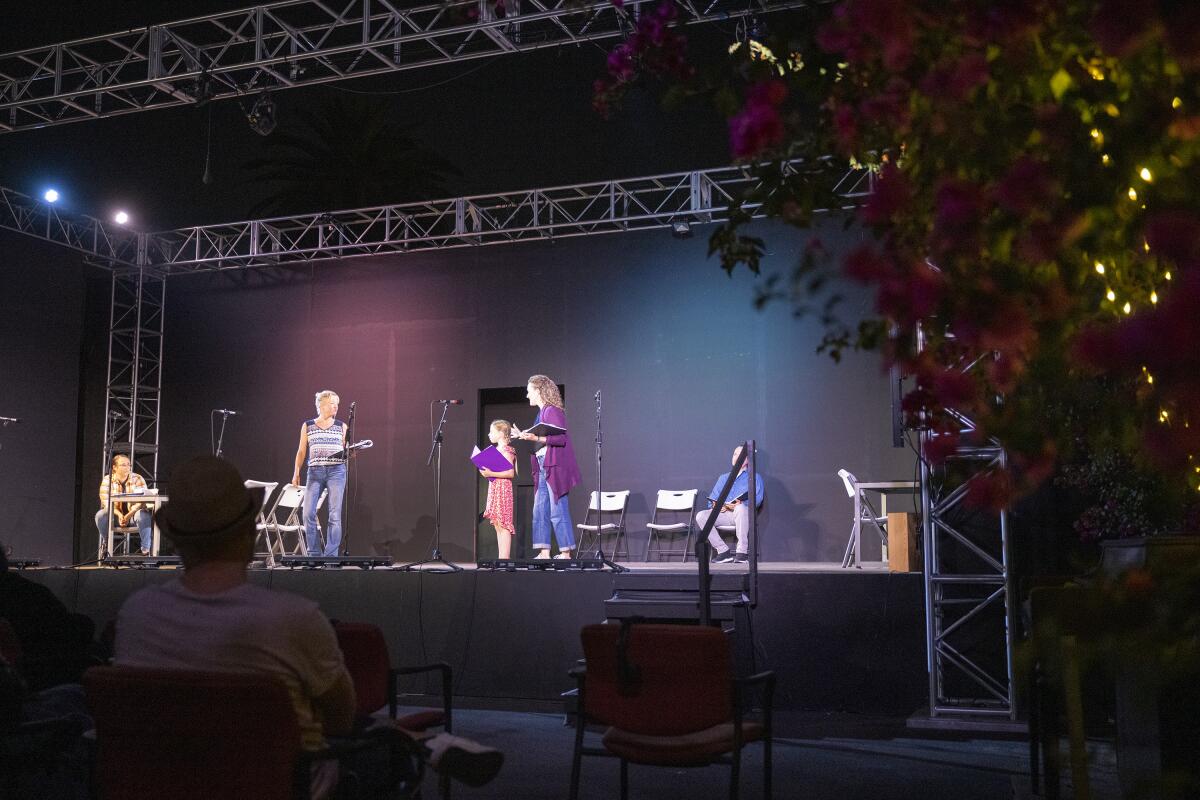
More to Read
The biggest entertainment stories
Get our big stories about Hollywood, film, television, music, arts, culture and more right in your inbox as soon as they publish.
You may occasionally receive promotional content from the Los Angeles Times.
